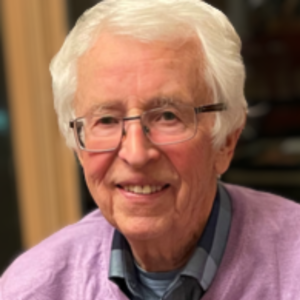Hinge Points: An Inside Look at North Korea’s Nuclear Program
Virtual Member-only Briefing Series
Thursday, September 14th, 2023 | 6:00 PM – 7:15 PM ET
Since U.S.-DPRK negotiations on the latter’s nuclear weapons program broke down in 2019, North Korea has largely ignored attempts by the United States and South Korea to resume dialogue. As one of the few states in the world not party to the Treaty on the Prohibition of Nuclear Weapons, North Korea has continued to develop and test nuclear weapons, going from zero in 2001 to perhaps 50 weapons two decades later. In September 2022, Kim Jong Un declared that North Korea will never denuclearize and allowed for preemptive nuclear strikes if imminent attacks are detected. How did the U.S. and North Korea reach this point after years of promising negotiations? What can we learn from past negotiations and how might North Korea’s current technical capabilities affect future ones?
Join us for a discussion with Dr. Siegfried S. Hecker, Former Director of the Los Alamos National Laboratory, Professor Emeritus of Stanford University, and the author of “Hinge Points: An Inside Look at North Korea’s Nuclear Program” on Thursday, September 14, from 6 PM to 7:15 PM ET where he will explain North Korea’s secretive nuclear weapons program, discuss the decisions and choices that have led to the current nuclear standoff in the Korean Peninsula, and share his experiences and analysis of his discussions with technical and political officials and visits to key nuclear sites in North Korea.
*This event is exclusive for Network 20/20’s members and donors
THIS SESSION IS FREE FOR NETWORK 20/20’s MEMBERS
NOT YET A NETWORK 20/20 MEMBER?
Apply today to enjoy all exclusive briefings with high-profile speakers
SPEAKER:
Dr. Siegfried S. Hecker
 Siegfried Hecker is the former director of the Los Alamos National Laboratory and Professor Emeritus of Stanford University. He is currently professor of practice at the Middlebury Institute of International Studies at Monterey and professor of practice in the Department of Nuclear Engineering at Texas A&M University. He was at the Los Alamos National Laboratory for 34 years, including serving as its fifth director from 1986 through 1997. He was at Stanford University for 17 years in the Department of Management Science and Engineering and in the Center for International Security and Cooperation (CISAC), including serving as co-director from 2007 to 2012. Hecker has worked on nuclear matters for most of his career, including having visited all countries with declared nuclear weapons programs, including North Korea. Hecker is the editor of Doomed to Cooperate (2016), two volumes documenting the history of Russian-U.S. laboratory-to-laboratory cooperation and Hinge Points: An Inside Look at North Korea’s Nuclear Program (2023) written with Elliot Serbin.
Siegfried Hecker is the former director of the Los Alamos National Laboratory and Professor Emeritus of Stanford University. He is currently professor of practice at the Middlebury Institute of International Studies at Monterey and professor of practice in the Department of Nuclear Engineering at Texas A&M University. He was at the Los Alamos National Laboratory for 34 years, including serving as its fifth director from 1986 through 1997. He was at Stanford University for 17 years in the Department of Management Science and Engineering and in the Center for International Security and Cooperation (CISAC), including serving as co-director from 2007 to 2012. Hecker has worked on nuclear matters for most of his career, including having visited all countries with declared nuclear weapons programs, including North Korea. Hecker is the editor of Doomed to Cooperate (2016), two volumes documenting the history of Russian-U.S. laboratory-to-laboratory cooperation and Hinge Points: An Inside Look at North Korea’s Nuclear Program (2023) written with Elliot Serbin.
About Hinge Points: An Inside Look at North Korea’s Nuclear Program

North Korea remains a puzzle to Americans. How did this country―one of the most isolated in the world and in the policy cross hairs of every U.S. administration during the past 30 years―progress from zero nuclear weapons in 2001 to a threatening arsenal of perhaps 50 such weapons in 2021?
Hinge Points brings readers literally inside the North Korean nuclear program, joining Siegfried Hecker to see what he saw and hear what he heard in his visits to North Korea from 2004 to 2010. Hecker goes beyond the technical details―described in plain English from his on-the-ground experience at the North’s nuclear center at Yongbyon―to put the nuclear program exactly where it belongs, in the context of decades of fateful foreign policy decisions in Pyongyang and Washington.
Describing these decisions as “hinge points,” he traces the consequences of opportunities missed by both sides. The result has been that successive U.S. administrations have been unable to prevent the North, with the weakest of hands, from becoming one of only three countries in the world that might target the United States with nuclear weapons. Hecker’s unique ability to marry the technical with the diplomatic is well informed by his interactions with North Korean and U.S. officials over many years, while his years of working with Russian, Chinese, Indian, and Pakistani nuclear officials have given him an unmatched breadth of experience from which to view and interpret the thinking and perspective of the North Koreans.
RSVP to Join us on September 14
We are trying our best to keep our community informed about foreign affairs, and we would appreciate if you can support us to keep this virtual briefing series going. No amount is too small.

